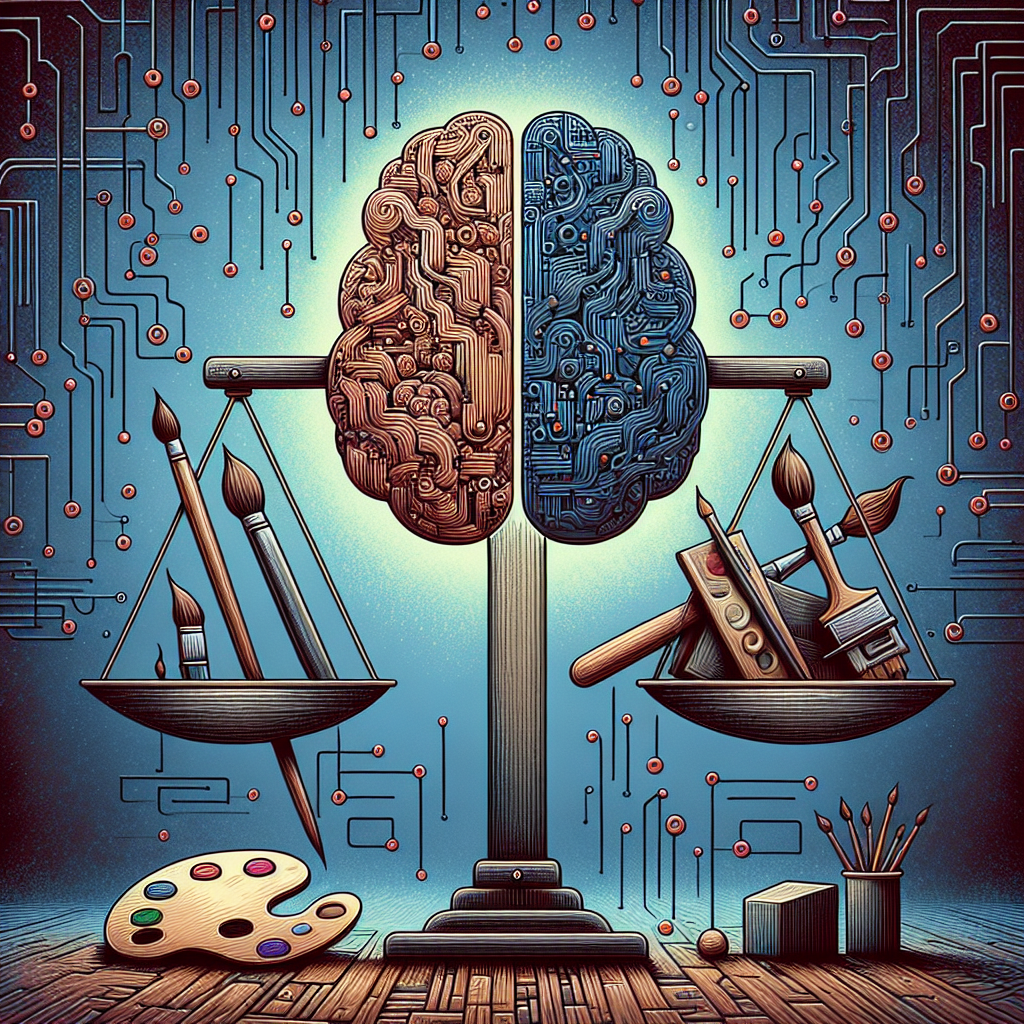Artificial intelligence (AI) has become an increasingly prevalent tool in various creative fields, including art, music, and design. While AI has the potential to enhance creativity and innovation, it also raises ethical questions about the role of technology in creative processes. As AI continues to advance, it is crucial to consider the ethical implications of its use in creative fields and to establish guidelines for responsible AI development and implementation.
One of the key ethical considerations surrounding AI in creative fields is the issue of authorship. When AI systems generate creative works, such as music compositions or visual art, who should be credited as the creator? Should the AI system itself be considered the artist, or should credit be given to the human programmer who created the algorithm? This question raises important issues about intellectual property rights and the value of human creativity.
Another ethical concern is the potential for AI to perpetuate biases and stereotypes in creative works. AI algorithms are trained on existing data, which can reflect and reinforce societal biases. For example, AI systems used in music composition may be biased towards certain genres or styles, leading to a lack of diversity in the music that is produced. Similarly, AI systems used in visual art may prioritize certain aesthetics or representations based on biased training data. It is essential to address these biases and ensure that AI systems are designed and trained in a way that promotes diversity and inclusivity in creative works.
Additionally, there are ethical concerns about the impact of AI on the creative workforce. As AI technology becomes more advanced, there is a concern that it may replace human artists and designers, leading to job displacement and economic inequality. It is important to consider how AI can be used to complement human creativity rather than replace it, and to ensure that the benefits of AI are distributed equitably among all members of the creative community.
Furthermore, there are ethical considerations related to the transparency and accountability of AI systems in creative fields. AI algorithms are often complex and opaque, making it difficult to understand how they generate creative works. This lack of transparency raises questions about how decisions are made by AI systems and who is responsible for the outcomes. It is essential to develop standards for transparency and accountability in AI development and to ensure that AI systems are designed in a way that is understandable and accountable to users.
In order to address these ethical concerns, it is important for stakeholders in the creative industry to engage in dialogue and collaboration with ethicists, policymakers, and technologists. By working together, we can develop ethical guidelines and best practices for the use of AI in creative fields, ensuring that AI technology is used in a responsible and ethical manner.
FAQs:
Q: Can AI truly be creative?
A: AI has the ability to generate creative works, such as music compositions and visual art, that are indistinguishable from those created by humans. However, the question of whether AI can truly be creative is a philosophical one that continues to be debated. While AI can mimic human creativity, some argue that true creativity involves intentionality, emotion, and a deeper understanding of context that AI lacks.
Q: How can AI be used to enhance human creativity?
A: AI can be used as a tool to enhance human creativity in various ways. For example, AI can help artists and designers generate new ideas, explore new creative possibilities, and streamline the creative process. AI can also be used to augment human creativity by providing inspiration, feedback, and assistance in the creation of creative works.
Q: What are some examples of AI in creative fields?
A: There are many examples of AI being used in creative fields, including music composition, visual art, design, and writing. For example, AI systems such as Google’s DeepDream have been used to generate psychedelic images, while AI algorithms like OpenAI’s GPT-3 have been used to generate text in a variety of styles and genres. AI has also been used in music composition to create new compositions and in design to generate new patterns and styles.
Q: What ethical guidelines should be followed when using AI in creative fields?
A: When using AI in creative fields, it is important to follow ethical guidelines that promote transparency, accountability, diversity, and inclusivity. This includes ensuring that AI systems are designed in a way that is transparent and understandable, that decisions made by AI systems are accountable to users, and that AI systems are trained on diverse and representative data to avoid bias and stereotypes. Additionally, it is important to consider the impact of AI on the creative workforce and to ensure that the benefits of AI are distributed equitably among all members of the creative community.

